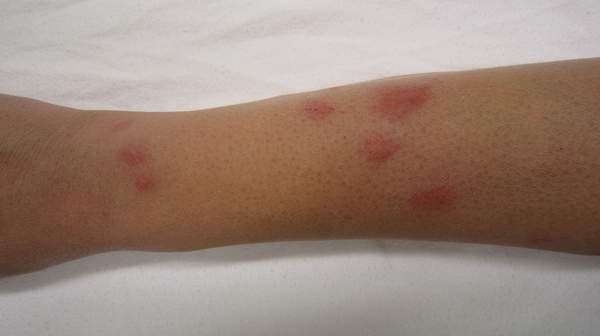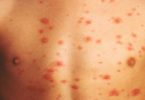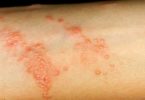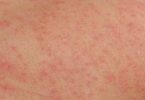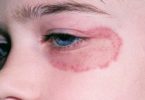What's in this article?
Bed Bug Bite Overview
The severity of symptoms associated with bed bug bites varies for each individual. Some people might not even know they were bitten, while others may be so allergic to the bites that they develop a rash and extreme itching. Before you try remedies to treat bed bug bites, make sure a bed bug is responsible.
Bed bug bites commonly resemble other insect bites, including mosquito bites, and so can be very hard to identify. Even a doctor cannot usually diagnose bites simply by looking at them.
read more about A Flea Bite: Treatments and Symptoms
How do you know if you have bedbugs?
Some people will not experience a reaction to a bed bug bite at all. Those that do experience symptoms of a bite are likely to experience one or more of the following:
- a bite with a red, swollen area and a dark red center
- bites in a line or grouped together in a small area
- blisters or hives at the bite site(s)
Bites can happen anywhere on the body. Most commonly they occur on areas of skin that are exposed while sleeping, such as the face, arms, legs, and hands.
To find out if you have bedbugs, you need to look for two things:
♦ Bites on your body.
♦ Signs of bedbugs.
Bites on your body: If you have bedbugs, you’re likely to have bites. Bed bug bites usually cause itchy welts. These welts usually appear in a zigzag pattern as show in the photo above.
You’ll seldom see bedbugs, so many people mistakenly believe that mosquitos, fleas, or spiders bit them. Sometimes people mistake bed bug bites for a common skin condition such as an itchy rash, hives, or chickenpox.
To make sure you have bedbugs, you’ll need to look for signs of bedbugs.
read more about Flea Bites: A red halo on a flea bite
What Are the Symptoms of a Bed Bug Bite?
Bed bug bites don’t always appear immediately after you’re bitten. They sometimes take a few days to begin causing symptoms. It should also be noted that bed bugs don’t come out to feed every single night—they can go several days without eating. It may take a few weeks to notice that your bites are part of a larger pattern.
Bed bug bites are often very itchy. You may experience a burning sensation on the skin several days after you’ve been bitten. You won’t feel the bugs bite you because they excrete a tiny amount of anesthesia into your body before they bite.
If you scratch the bite, you may cause a secondary infection that can lead to swelling and bleeding.
Diagnosis of Bed bug Bites
The diagnosis of a bedbug bite can sometimes be difficult, as bed bug bites may appear similar to the bites of other insects. Your health-care provider will ask you detailed questions and perform a physical exam, focusing on the skin. Other organ systems will also be examined to assess for any signs of an allergic reaction or for signs of infection. No blood tests or imaging studies will be necessary. If you are able to bring in a specimen of the insect that may have bitten you, this may be helpful in making the diagnosis.
Treating bed bug bites
You should see a dermatologist for treatment if you have:
- Many bites.
- Blisters.
- Skin infection (bites feel tender or ooze discharge such as pus).
- An allergic skin reaction (skin red and swollen or hives).
read more about Flea Bites: Symptoms, Pictures, Treatments and Prevention
Your dermatologist may prescribe the following to treat bed bug bites:
- Allergic reaction: Some people may require an injection of an antihistamine, corticosteroid, or epinephrine (adrenaline) for a severe allergic reaction.
- Infection: An infection may require an antibiotic. If the infection is mild, your dermatologist may recommend an antiseptic medication that you can buy without a prescription. Your dermatologist will tell you which one to use. Your dermatologist also may recommend an antiseptic to prevent a skin infection.
- Itch: A prescription antihistamine pill or liquid can help. You also can apply a corticosteroid to the bites. Your dermatologist will tell you which is best for you.

